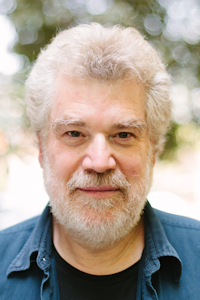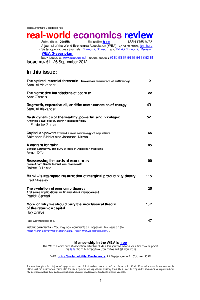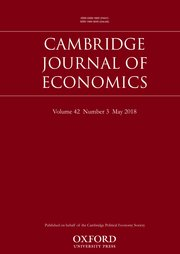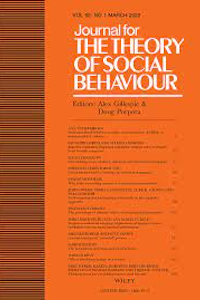
A central feature of the Alternative Approaches Research Group is a commitment to pluralism, and in particular to a recognition that mathematical modelling is not the only way to study social phenomena. All members of this grouping prioritise real world relevance, and contribute to the history of economic thought and heterodox economics. Within heterodox economics, a focus on institutional economics and forms of development economics is fairly strong. The majority also work on philosophical issues, most especially social ontology, that is on studying the nature of social phenomena (the nature of money, firms, technology, etc.), and are participants of the Cambridge Social Ontology Group (https://www.csog.econ.cam.ac.uk/).

Dr Jose Gabriel Palma
Emeritus Senior Lecturer
Research Interests
The economic development of Latin America and East Asia and their integration within the World Economy. In particular, the study of these economies from the point of view of their economic history, macroeconomics, international trade and international finance.
Research Grants
- ISRF Professorial Research Fellowship (INDEPENDENT SOCIAL RESEARCH FOUNDATION (ISRF)) - Lawson, T.
Published Papers
Lawson, T. The Human Person, the Human Social Individual and Community Interactions, Cambridge Journal of Economics (2023)Lawson, T. Social Positioning Theory and Quantum Mechanics, Journal for the Theory of Social Behaviour, forthcoming (2023)
Lawson, T. Social Positioning Theory, Cambridge Journal of Economics (2022)
Lawson, T. Two Conceptions of the Nature of Money: Clarifying Differences Between MMT and Money Theories Sponsored by Social Positioning Theory, Real-World Economics Review (2022)
Faulkner, P., Lawson, C. and Runde, J. Theorising technology, Cambridge Journal of Economics (2010)
Cambridge Working Papers in Economics
Palma, J. G. Why the Rich Stay Rich. On dysfunctional institutions’ “ability to persist” (no matter what), CWPE20124Palma, J. G. Why is inequality so unequal across the world? Part 2 The diversity of inequality in market income ─ and the increasing asymmetry between the distribution of income before and after taxes and transferences, CWPE19100
Palma, J. G. How Latin America Sinks into the Quicksand of Inertia: on getting bogged down between a fading “extractivist” model and more productivity-enhancing alternatives that just can't generate enough credibility ―while populism looks for magical solutions... , CWPE2380
Palma, J. G. Ricardo was surely right: the abundance of “easy” rents leads to greedy and lazy elites., CWPE2326
Palma, J. G., Pincus, J. Is Southeast Asia falling into a Latin American style “middle-income trap”?, CWPE2267
Palma, J. G. Financialisation as a (it’s-not-meant-to-make-sense) gigantic global joke, CWPE2211
Palma, J. G. Finance as Perpetual Orgy How the ‘new alchemists’ twisted Kindleberger’s cycle of “manias, panics and crashes” into “manias, panics and renewed manias”, CWPE2094
Palma, J. G. Why is inequality so unequal across the world? Part 1. The diversity of inequality in disposable income: multiplicity of fundamentals, or complex interactions between political settlements and market failures?, CWPE1999
Palma, J. G. The Chilean economy since the return to democracy in 1990. On how to get an emerging economy growing, and then sink slowly into the quicksand of a “middle-income trap”, CWPE1991
Palma, J. G. Do nations just get the inequality they deserve? The 'Palma Ratio' re-examined, CWPE1627
Palma, J. G. Why corporations in developing countries are likely to be even more susceptible to the vicissitudes of international finance than their counterparts in the developed world: A Tribute to Ajit Singh, CWPE1539
Lawson, T. Comparing Conceptions of Social Ontology: Emergent Social Entities and/or Institutional Facts?, CWPE1514
Palma, J. G. Has the income share of the middle and upper-middle been stable over time, or is its current homogeneity across the world the outcome of a process of convergence? The 'Palma Ratio' revisited , CWPE1437
Palma, J. G. Latin America's social imagination since 1950. From one type of 'absolute certainties' to another - with no (far more creative)'uncomfortable uncertainties' in sight,, CWPE1416
Palma, J. G. How to create a financial crisis by trying to avoid one: the Brazilian 1999-financial collapse as "Macho-Monetarism" can't handle "Bubble Thy Neighbour" levels of inflows, CWPE1301
Palma, J. G. Was Brazil's recent growth acceleration the world's most overrated boom?, CWPE1248
Palma, J. G. How the full opening of the capital account to highly liquid financial markets led Latin America to two and a half cycles of ‘mania, panic and crash’, CWPE1201
Palma, J. G. Homogeneous middles vs. heterogeneous tails, and the end of the ‘Inverted-U’: the share of the rich is what it’s all about, CWPE1111
Palma, J. G. Why has productivity growth stagnated in most Latin-American countries since the neo-liberal reforms? (Revised 26-07-2011), CWPE1030
Palma, J. G. The Revenge of the Market on the Rentiers: Why neo-liberal Reports of the end of history turned out to be premature, CWPE0927
Authored Books
Lawson, T. The Nature of Social Reality: Issues in Social Ontology, (2019), RoutledgeLawson, C. Technology and Isolation, (2017), Cambridge University Press
Lawson, T. The Nature and State of Modern Economics, (2015), Routledge
Lawson, T. Reorienting Economics, (2003), Routledge
Lawson, T. Economics and Reality, (1997), Routledge
Chapter in Book
Lawson, T. Categorisation, Criticism and Pluralism in Context: Open and Closed Systems and the Project of Mathematical Modelling in Modern Economics, (2022), forthcoming in Economic Methodology, History and Pluralism. Expanding Economic Thought to Meet Contemporary Challenges. Edited by Ioana Negru, Penelope Hawkins - London and New York: RoutledgePalma, J. G. The Chilean economy since the return to democracy in 1990. On how to get an emerging economy growing, and then sink slowly into the quicksand of a “middle-income trap”, (2020), forthcoming in A New Economic History of Chile. - Cambridge University Press
Palma, J. G. How does Europe manage to achieve a relatively low and homogenous level of inequality in spite of a broad diversity of fundamentals?, (2019), forthcoming in Cherishing All Equally 2019: Inequality in Europe and Ireland. - FESP
Lawson, T. The Nature of Money and Possibility of Cryptocurrency Money, (2019), forthcoming in Cryptocurrencies and the Future of Money. - IE Centre for the Governance of Change
Lawson, C. Feenberg, rationality and isolation, (2018), forthcoming in Critical theory and the thought of Andrew Feenberg. Edited by Darrell Arnold, Michel Andreas - Palgrave Macmillan
Palma, J. G. The multiplicity of distributional outcomes across the world: Diversities of fundamentals or countries getting the inequality they deserve?, (2018), forthcoming in Handbook of Globalisation. - Edward Elgar
Lawson, T. Eudaimonic Bubbles, Social Change and the NHS, (2017), forthcoming in Morphogenesis and Eudaimonia. - Springer
Lawson Collective learning, system competences and epistemically signicant moments, (2017), forthcoming in High-technology clusters, networking and collective learning in Europe. Edited by David Keeble, Frank Wilkinson - Taylor and Francis









